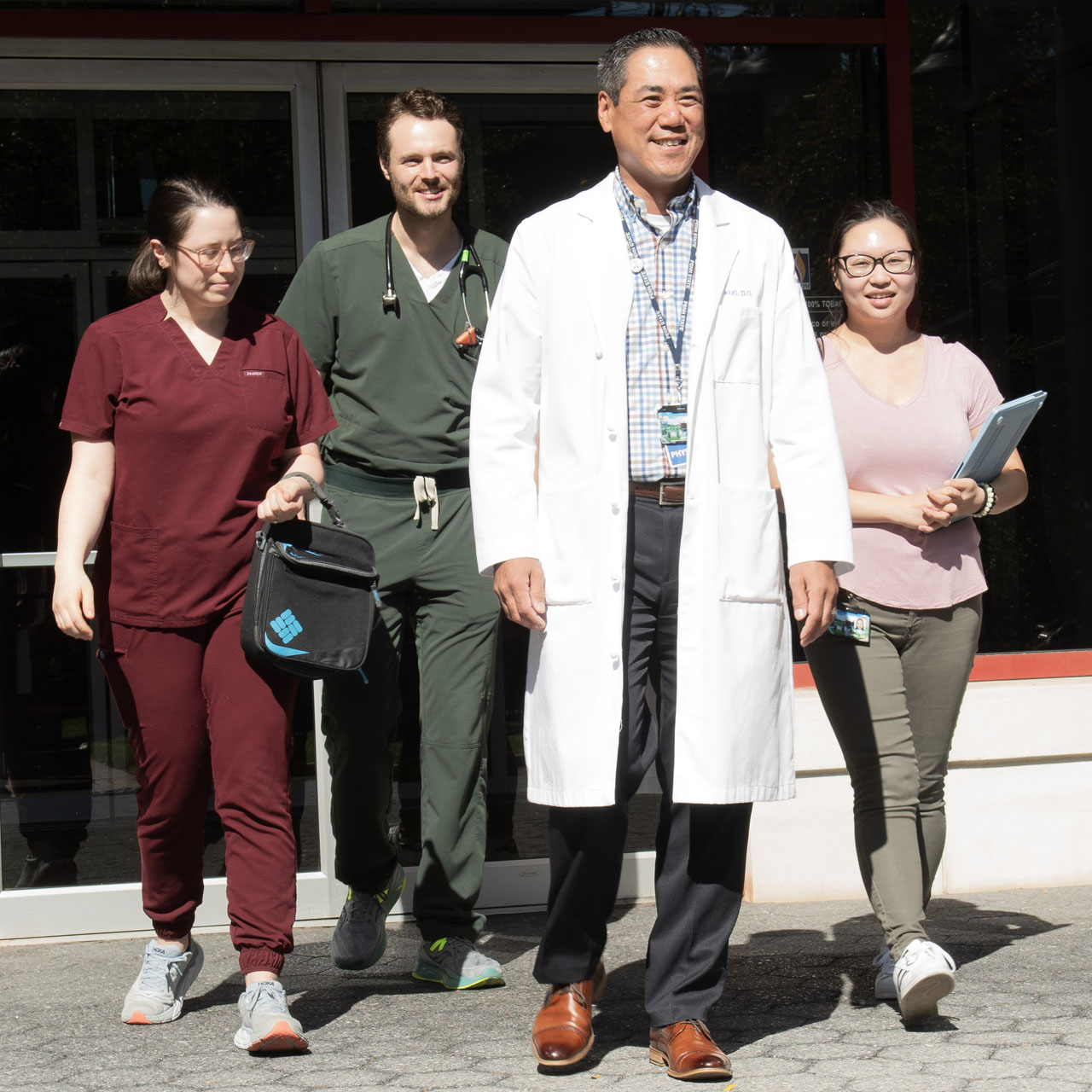Then and Now: David Kuo, DO '96
PCOM at 125
March 7, 2024Anniversaries are often an opportunity to reflect – on progress made, challenges overcome,
and what may lie ahead. As the College celebrates its 125th anniversary, David Kuo, DO '96, associate dean of Graduate Medical Education, has been reflecting on PCOM's legacy – and his own – with an eye toward the future.
Dr. David Kuo discusses graduate medical education at PCOM
“The core of residency training, experiential hands-on learning supplemented with
didactic lectures, has not changed over the years, but the rest of it has,” Kuo reflected.
“There has been an explosion of medical knowledge in the last 25 years since I was
a resident, and today's residents have to know so much more information than I did.”
His hope, despite the differences from his own experience, is that he made an impact
on the lives of his students. “I hope the students and residents feel that I was a
good teacher and mentor and that I was an advocate for PCOM and the osteopathic profession,” he said. “I had so many great teachers over the years, and I just want to pass
on my knowledge to the next generation, just like they did for me.”
Kuo is optimistic for a future where technology continues to be integrated into the
doctor-patient relationship without sacrificing the importance of human connection.
“Artificial intelligence is changing medicine, and it's very exciting,” he said. “But I think we're always going to need human
physicians to connect with our patients. In graduate medical education, we are always
working on ways to teach cutting-edge technology and the newest evidence-based medicine
to our residents, but I don't want them to forget the basics of medical care.”
“Spending time with patients, earnestly listening to them and providing the healing
power of touch,” he added. “If [students] remember these things, then they can carry
on the osteopathic tradition of providing high quality, compassionate, and humanistic
care to the community.”



